A Cedar of Lebanon
Matti Friedman came home from Outpost Pumpkin, where he was based during his tour of duty in Lebanon, not long before Israel made the decision to withdraw from the “security zone.” “When the army pulled out of Lebanon, I was happy. I thought that the problem was resolved by the withdrawal,” he recently told an interviewer. But within months the Israeli-Palestinian peace process had fallen apart and Hezbollah, in control of the area Israel held between 1985 and 2000, crossed the border, capturing and killing three IDF soldiers. “I started to understand that things don’t work the way we want them to work, and that the Middle East does not respond to our dictates or desires.”
In Pumpkinflowers, Friedman’s account of his time at Outpost Pumpkin, he sets out to provide both a history and a memoir of a conflict that lacks either an official name or a physical memorial aside from one built by a dead soldier’s mother on her kibbutz without government assistance. Appropriately for a book about a military operation that Friedman argues convincingly is a precursor to today’s open-ended conflicts in the Middle East, Pumpkinflowers begins before his time in the military, with the induction of a man he never met, one of his predecessors in the Fighting Pioneer Youth (Nachal) army brigade, Avi Ofner. Friedman reconstructs Ofner’s life from letters Ofner wrote home to a childhood friend named Smadar, interviews with his parents, and conversations with Avi’s army buddies.
Ofner serves both as a mirror for Friedman and, perhaps, as a way for him to distance himself from his own experience, to walk the reader through the path to and life at Outpost Pumpkin without the awkwardness of naked self-revelation. Indeed, after a brief prologue, Friedman virtually disappears from the narrative for 100 pages. Until then, Ofner’s experience is Friedman’s experience:
Avi got used to sleeping on a cot with other soldiers inches from him on either side, his rifle underneath his head, the thin green mattress keeping his cheek from the cold metal of the gun. The recruits were soon too tired to notice the discomfort, or to dream.
This is not to say that Avi Ofner is merely a literary device, the type one finds in the memoirs of virtually any war, the “he could have been me” of the nameless dead infantrymen William Manchester encountered as he marched into battle on Okinawa: “Probably I knew some of the men, but covered as they were I couldn’t identify any. Every pair of boondockers looked like every other pair. I looked down at my own. They were the same.” Avi Ofner’s story, it is clear, is partly Friedman’s story, the two young men both doing their duty and yet, as Friedman writes of Avi, “standing to one side and watching everyone, including himself.” Avi is, in Friedman’s account, more of a writer, more of a watcher, perhaps possessed of more potential, the impression heightened because his death came when he was still almost all potential. He was killed on February 4, 1997 in a helicopter crash that claimed 73 lives, an event that catalyzed demand within Israel for the military to withdraw.
Many reviewers have likened Pumpkinflowers to memoirs about Vietnam, but Friedman’s literary models are the French World War II writer Romain Gary—a favorite of Avi’s, as it turns out—and the writers of the Great War whose “perception, so much clearer than mine,” Friedman writes, forced him to confront “the thinness of the line between here and gone . . . how flimsy is the border between those two states, between Avi and me.” This thought comes to him unbidden when he pushes his small daughter on the swings one afternoon and watches her point the tips of her red sandals at the top of the cypress trees: “I know I could have missed this. I almost missed it. Others did.” For the careful reader, the cypress trees in this Jerusalem park remind one of Outpost Cypress, the most distant of Israel’s outposts in Lebanon, and the red of Friedman’s daughter’s sandals evokes the red boots of the Nachal soldiers. (Other bases in Lebanon were named Basil, Crocus, and Red Pepper. Using agricultural terms for military things is a hallmark of the IDF; its night-vision system is called Artichoke.)
The density of literary allusion and psychological associations is one of the achievements of Friedman’s book. The signs at Outpost Pumpkin parallel the signs Friedman encounters when he travels at the end of the book back to Lebanon via Canada, where he was born and where he unloads traces of his Israeli identity (passport, shekels, clothing labels) to pose as a tourist. He wants, rather he needs, to see the Pumpkin again and to visit the town below it, to finally eat at the small restaurant on the banks of the Litani that the soldiers joked they would sit at to eat and “watch the river run by.” In a book about someplace other than Israel, the coincidences would seem forced, unlikely. But one is unsurprised that Friedman, who titled his book Pumpkinflowers for the hilltop where he served and for wounded soldiers, who in Israel are called “flowers,” finds himself hearing the news that the last soldiers had left Lebanon as he goes about his first post-military job cutting hothouse roses bound for export.
In addition to the weight survivors feel, Friedman bears the burden of giving voice to the place that shaped young men’s lives and took others, while leaving no official trace:
In Hebrew the outpost was called Dla’at—just Pumpkin, not the Pumpkin. But I have always thought of it as a place that deserves the definite article in English. As the Pumpkin’s first historian in any language, and almost certainly its last, I grant myself license to call it in translation whatever I want. The name now seems to hint at the kind of magic at work in the transformation of a bare hilltop into the scene of emotion and drama and its sudden transformation back into a place of no importance at all.
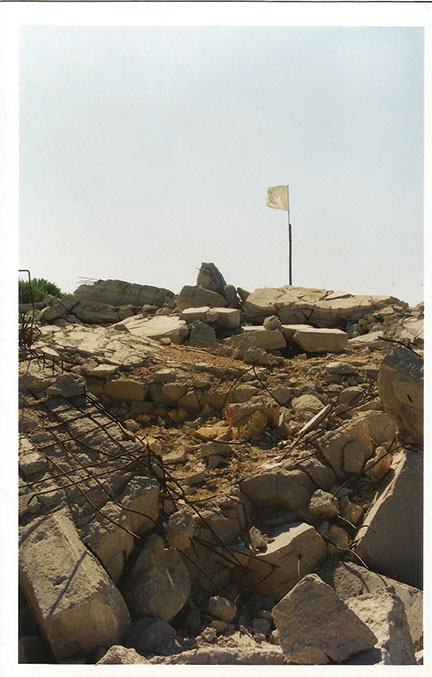
A place of no intrinsic importance at all, not even to Hezbollah, whose fighters died attacking the Pumpkin and who made it a symbol of the “struggle” in an infamous video of guerillas charging up the hill to plant their flag before turning and running away (that part wasn’t in the video). As Friedman writes, this was the first salvo of “videotaped violence and the media war, which is a war not for territory but for ‘consciousness.’” Returning to the Pumpkin in September 2002, just two years and five months after the last Israeli forces left it, he finds it abandoned, topped with a Hezbollah flag that is “just a ragged scrap of fabric that had once been yellow.”
Friedman’s voice is sometimes soldier-sardonic, without ever being disrespectful or glossing over the violence of life at the Pumpkin, as when Yohai, the company commander, is seriously wounded by shrapnel:
He got himself to one of the bunkers. There was a soldier at the doorway who just stared at him and froze, because Yohai was like their father, he was supposed to be taking care of them, but here he was scorched and stunned with his nose hanging by a piece of skin. Yohai walked past the solider into the bunker and lay on one of the beds. He called for a medic and blacked out. The medics say he was flailing around so much they had to drug him just to get a tube in his mouth and keep him breathing until a helicopter could land. They did a good job, so he’s alive today. He sends his regards.
The terse final sentences that close out paragraphs are Pumpkinflowers’ hallmark, delivering what the soldiers of the time called a bomb’s mit’an, the payload. “If you pay attention you can make out the words: ‘For the country.’” “It was heavier than they expected.” “‘Everything’s okay,’ Avi said.” Their effect is devastating. Devastating too is the hard-earned knowledge that, as Friedman points out, groups like Hezbollah weren’t posturing when they said they were more than an armed group fighting for a piece of land, that they were “a vision and an approach,” with “ideological cousins and imitators” across the region. A mit’an like the one that almost claimed his life one night on patrol now goes by the name improvised explosive device (IED).
In a political landscape in which the Syrian foreign minister warned that, UN Security Council Resolution 425 notwithstanding, Israeli withdrawal from Lebanon without his country’s consent would be an act of war, Friedman leaves the reader with an Israel that has let go of the hope that good choices will lead to good outcomes. In its place, he tells us, is a nation of people “allergic to ideology” and “expert in extracting the enjoyment possible from a constricted and endangered existence.” As with Harel, the sole survivor of Ofner’s platoon and Friedman’s platoon leader, who returned to the Pumpkin without 73 of his friends, there is valor enough in showing up.
Suggested Reading
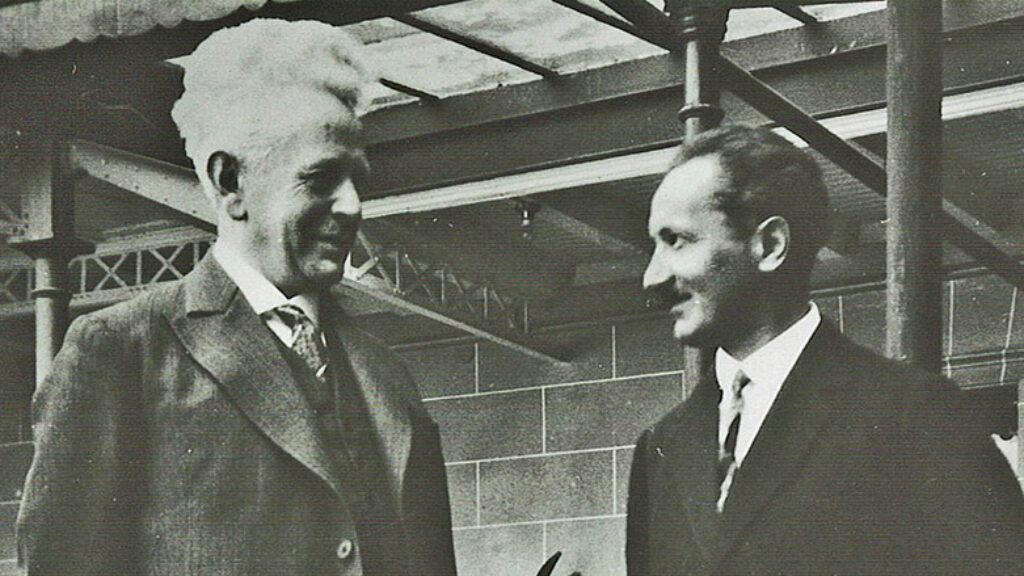
Fatal Attraction
Although Martin Heidegger joined the Nazi Party in 1933 and never forthrightly repented of the episode “no other philosopher had more impact on twentieth-century European Jewish thought.”
Coming with a Lampoon
Jacobson is a world master of the art of disturbing comedy and each new work of his advances the genre—his latest one by a giant step.
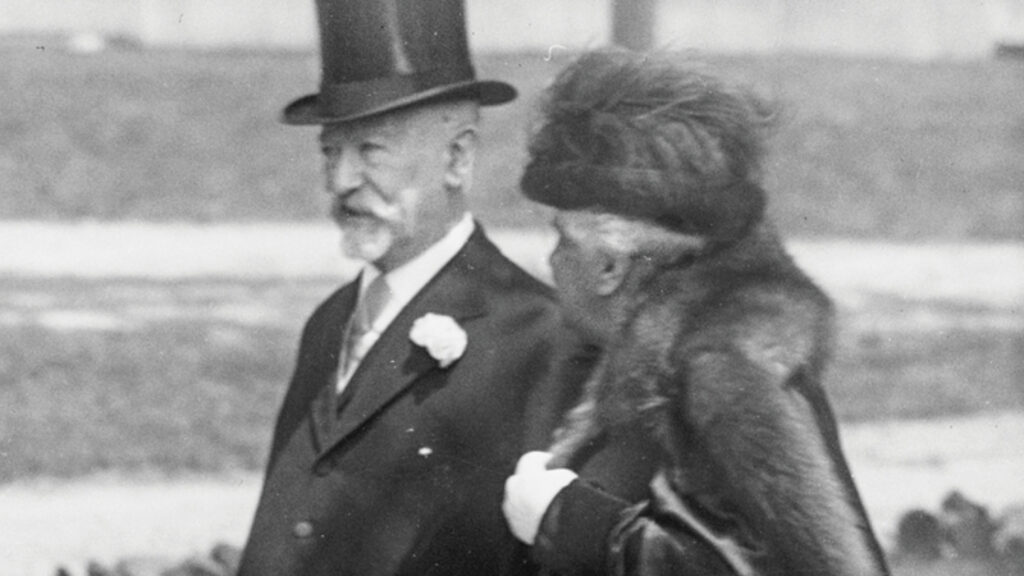
Their Crowd
What influence did Jacob Schiff and other wealthy Jews wield over the invention of American Jewry?
Three Portraits of Jewish Excellence—at 29
At the age of 29, David Ben-Gurion was speaking to empty halls across America for the Zionist movement and Leo Strauss was finding the “theological-political predicament” insoluble. As for Rabbi Joseph Soloveitchik, he was in Berlin worrying about epistemology and halakha. Three portraits of Jewish excellence in the making.
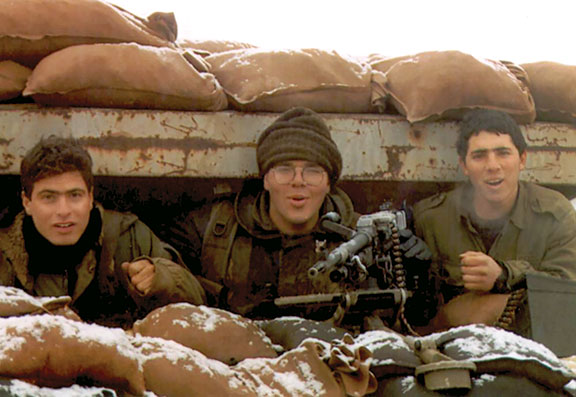
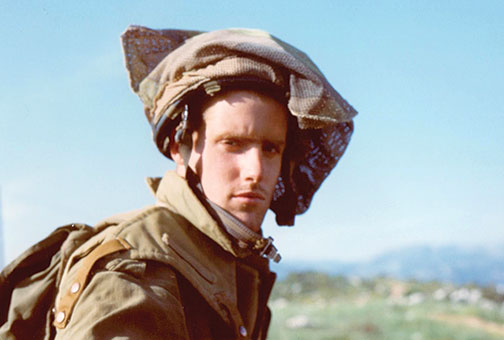
Comments
You must log in to comment Log In